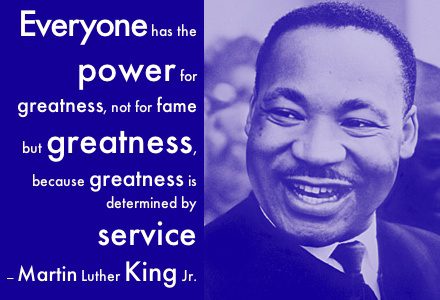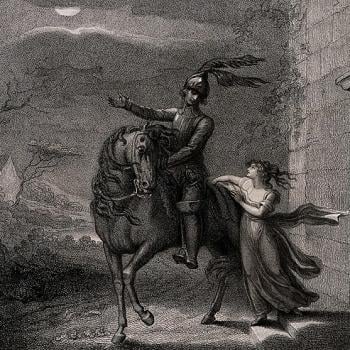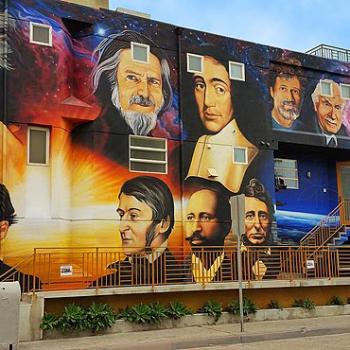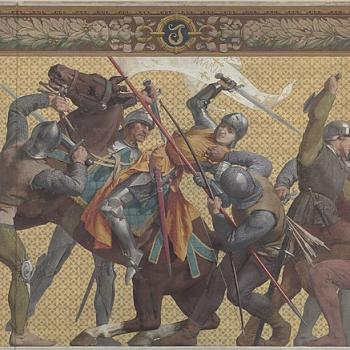MARTIN’S DREAM
A Meditation on Dr Martin Luther King, Jr and the Dreams that Connect Us All
A Sermon by
James Ishmael Ford
15 January 2017
Tapestry Unitarian Universalist Congregation
Mission Viejo, California
We are caught in an inescapable network of mutuality, tied in a single garment of destiny. Injustice anywhere is a threat to justice everywhere. There are some things in our social system to which all of us ought to be maladjusted. Hatred and bitterness can never cure the disease of fear; only love can do that. We must evolve for all human conflict a method, which rejects revenge, aggression, and retaliation. The foundation of such a method is love. Before it is too late, we must narrow the gaping chasm between our proclamations of peace and our lowly deeds which precipitate and perpetuate war. One day we must come to see that peace is not merely a distant goal that we seek but a means by which we arrive at that goal. We must pursue peaceful ends through peaceful means. We shall hew out of the mountain of despair, a stone of hope.
Martin Luther King, Jr. Adapted
Yesterday Jan and I attended the annual MLK Day march in Long Beach, going with the contingent from our local UU church. It was a powerful experience, as it has been for me for many years. It was also its own thing, unique to the moment. Very much. It was big; the parade itself featured nearly ninety different contingents. And so there were lots of people doing their own thing, including the mix of people hawking various wares. Me, I was sorely tempted by what sure appeared to be home made tamales. Others offered T-shirts. Still, others, well, it wasn’t always clear what the connections were supposed to be.
Fundamentalist Christian preachers wandered along the sides of the parade and harangued. An elderly gentleman walked on the sidewalk in front of us, pointedly, I suspect, near the High School ROTC marchers, as his sign read “Martin Luther King Jr., opposed war. As do I.” That was just one of many complex and on occasion ironic juxtapositions. One might say, there were many dreams on offer. Dreams.
It reminded me of when Dr Martin Luther King, Jr was assassinated. After the police and FBI arrived, during all the confusion, people running around, agents trying to get a handle on what had happened, one agent informed his superior on a walkie-talkie how he just heard Coretta Scott King say that Martin’s dream would never die. There was, I gather, a pause. Then the agent’s superior instructed him to, “Find out what that dream was.”
Dreams. What a question; really, what a wonderful question. What was Martin’s dream? And, yes, and. What were the dreams of all those people at yesterday’s march? What dreams occupy your heart? When we discuss our dreams we move into strange and mysterious waters. But, most of all, for today, for us, what was Dr King’s dream? It touches, I believe, the great heart of our lives.
And, I suggest within the dream world, with all those wild differences, selling religions, selling tamales, selling messages of war and peace, there are connections. Today, two things. First, I want to assert that among the many dreams, there is a deep connection. There is, in fact, a profound dream at the heart of all dreams. Among the many stars we follow, there is also one star, mysterious and beckoning. It is the dream of our common humanity.
Dr King spoke to a large part of this dream within his work for racial justice. Which is how it has to be. That is the universal must always be expressed within the particular. All lives matter is a true statement, but its true because black lives matter. It’s one of those laws of the heart. Love is not found in general, it is always your love, it is always my love – some specific love.
Love. Dreams. Here’s a question for us in our liberal churches. What is the deep dream of the human heart that calls us to work for racial justice, to work for civil rights for gay and lesbian and transgendered people, for the poor, and the disenfranchised? At that parade we carried a banner that sang out “Standing on the side of Love.”
So, what is the deep dream that we call love? Well, in his “I Have a Dream” speech, Dr King sang it out to us. “We are caught in an inescapable network of mutuality, tied in a single garment of destiny.” Here we find the dream, the deep dream, dreamed into our lives across cultures and throughout time from the deepest place of our hearts, from the most profound knowing of our beings. Love. This is the truth. We are all caught up together more intimately than words can ever convey. True love.
And it really is a universal dream. No religion owns love, although all partake of it to one degree or another. And, honestly, some articulate it better and more completely, although also which is better is often a bit different for each of us. Recently a friend commented how while he found the Christian and Jewish and Muslim mystics speaking of all being one a valuable pointer on his own way to knowing the deepest, he found the Zen Buddhist expression not one, not two in fact a little more helpful. But that difficult sense of connection tells us something about how we need to relate to each other. Family becomes a powerful image. If not quite right. But, it points. As does the word love, and the statement love beyond belief. It none is quite right.
Of course there is something important in these different expressions, of different religions, of our own individual hearts. There are dynamics within our unity. It is not static. And so, in some ways Dr King’s expression of it being like a network can be more helpful. And then, sometimes we do find it more like a garment, the sense of our connection, our feeling quality of it, sometimes put on, sometimes dropped off.
I have an interest in the work of the “emergent church” theologian Brian McLaren, one of the new crop who along with Rob Bell are condemned by other Evangelical and Fundamentalist Christians as, heaven help us, “universalists,” or, for our purposes here in a Unitarian Universalist congregation, close enough so as not to make any real difference. I admit anyone accused of universalism is going to be interesting to me – because, universalism is another way to speak of that great dream of our essential unity.
Anyway the Reverend McLaren was asked, well, what about the Unitarians, the Unitarian Universalists? In his response he was for the most part generous with us. He saw how we’ve walked away from the problematic assertions of the orthodox Christian church out of which we come, but also noted “a religious community (which) deconstructs without reconstructing will put it at a disadvantage.” That said, he also sees things going on, he sees us in the act of reconstructing, of finding our expression of the deeper truths, and joins with that other interesting Christian theologian who knows us well, John Cobb, observing how they believe “the best contributions of (the) Unitarians are in their future, and what they can be has not yet been fully manifested.”
I find myself thinking of something Colin Powell once noted. “A dream doesn’t become reality through magic; it takes sweat, determination and hard work.” I would say we’re further along in that reconstruction than Reverends Cobb and McLaren and their company appear to think. We are beginning to articulate the deep dream in very interesting and, I believe with all my heart, useful and compelling ways.
Some thirty years ago when the UU Women’s Federation began the conversation which would culminate in our current Statement of Principles and Purposes, not as a creed, something believed to be for ever and ever and which one must sign on to, to belong – but as something descriptive, a snapshot of what the larger number of us do see as deeply true and compelling, two assertions stand out. While I think each problematic by itself, taken together we have our way, our future, our unique and valuable expression of the ancient dream.
You, and you, and you, and me, each and every one of us are born precious and unique, a gift. Each of us as we leap into the world, beautiful and passing. And, equally true, we are birthed out of and of the world, each of us therefore related to everyone and everything. Here we have a new speaking of the great dream sometimes called one, sometimes called neither one nor two. We have found the secret of who we really are, or, rather some part of us saw it, spoke it, sang it, and we now can hear it, and we can from that hearing, live it. This is a way of life we are being called into. Our liberal spiritual way is a healing message, and a map for us to follow.
Here is “good news” worth proclaiming. And within our liberal religious assemblies we do. Without ever having stepped into this community before, I know you do. It is the deep dream that drove Dr King into a lifetime struggle and even to an assassin’s bullet while struggling for the full civil rights of people of African descent. And, who we know are our people, us. It is what drives many of us today to put it on the line in the struggle for full civil rights for gay and lesbian and transgendered people, who we know are our people, us. It is what calls so many of us to seek ways to resolve the turmoil of immigration in our country today, to bring people in from the shadows, and to the full possibilities of a healthy community, knowing they are our people, us. It is knowing every homeless person, every hungry person, every person denied justice and a place, is us. And of course the dream includes the earth itself. Us. Us. You. Me.
This is our dream. The great dream. Edgar Allan Poe on one occasion observed “Those who dream by day are cognizant of many things which escape those who dream only by night.” We dream this great dream from sleep and waking into reality week after week within our liberal religious communities, within this community.
And dreaming into reality, we find many concerns rising. Coming to know community and our own place. Raising our children. And work. Lots of it. Feeding the hungry, clothing the naked, seeking housing for those without homes, and helping to protect those in danger of losing their homes. Protecting the earth. And, most dangerously, also, out of that deep dream, asking why these things happen. Dreaming dreams, dreaming the dream, at night and during the day, and living it out into the world, that’s our dangerous calling.
My experience is that we sometimes hear the word and it resonates and we know its truth. Mostly, however, we hear in part, something we hear or experience strikes us as true and it becomes a notion or intimation. It is a small flickering flame that needs fanning, careful encouragement into a great fire. And that’s another important part of why we, we, this gathered community of religious liberals, come together. Here we find opportunities, things we can do pointing our minds and hearts toward our own ever-deeper experiences of the dream.
I think it is so important for us to express our individual dreams, to compare them, and in that to find how they complement or even join together, and in that weaving to reveal the great dream, the ancient dream, the dream of connections so intimate as to make the world a garment of love, a garment of destiny.
These are the dreams of our hearts; this is the dream of heart. Nothing less.
Let us join together in the great work, let us find in each other the great mystery, and in that finding, let us turn our feet toward that north star, and continue our journey toward liberation, for ourselves, and for the many beings.
Amen. And, amen.













